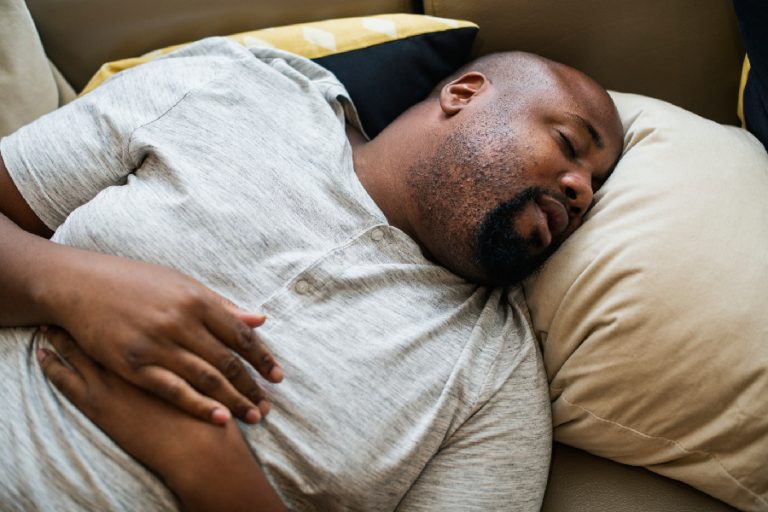Introduction
Addiction is a complex and deeply personal struggle that affects millions of people worldwide. It is not simply a matter of willpower or poor choices but a condition deeply rooted in neurology, psychology, and environmental factors. Whether it’s substance abuse or behavioral addiction, the cycle of dependence can be overwhelming, leading to significant impacts on mental, emotional, and physical well-being.
From a psychiatric perspective, addiction is considered a chronic brain disorder that alters mood, decision-making, and impulse control. Recovery is not just about quitting a substance or behavior—it’s about addressing the underlying mental health issues, reshaping thought patterns, and building a life that supports long-term healing.
This blog explores the psychiatric approach to addiction recovery, including the science behind addiction, the role of mental health, evidence-based treatment options, and the journey to reclaiming control.
Understanding Addiction: The Brain and Behavior
What Is Addiction?
Addiction is a chronic disorder characterized by compulsive seeking and use of a substance or behavior despite negative consequences. It is driven by changes in the brain’s reward system, particularly involving dopamine, a neurotransmitter that regulates pleasure and motivation.
Substances such as alcohol, opioids, nicotine, and stimulants flood the brain with dopamine, reinforcing the cycle of use. Over time, the brain develops tolerance, requiring more of the substance to achieve the same effect, leading to dependence and withdrawal symptoms.
Behavioral addictions, such as gambling, internet use, or binge eating, work similarly by activating reward pathways, making it difficult to break the habit.
Mental Health and Addiction: The Dual Diagnosis Factor
Many individuals struggling with addiction also suffer from underlying mental health conditions such as:
- Depression: Substances may be used as a way to numb emotional pain.
- Anxiety Disorders: Alcohol or drugs may provide temporary relief from chronic worry.
- PTSD: Trauma survivors often turn to addictive behaviors as coping mechanisms.
- Bipolar Disorder: Manic episodes can lead to impulsive substance use.
This combination of addiction and mental health disorders is called dual diagnosis, requiring a treatment approach that addresses both conditions simultaneously.
The Psychiatric Approach to Addiction Recovery
1. Comprehensive Psychiatric Assessment
Recovery begins with a thorough psychiatric evaluation to identify the severity of addiction, co-existing mental health conditions, and personal triggers.
A detailed assessment includes:
- Medical history and substance use patterns
- Psychological evaluation for anxiety, depression, or trauma
- Social and environmental factors influencing addiction
- Readiness and motivation for recovery
Understanding these factors helps develop a personalized treatment plan tailored to the individual’s needs.
2. Medication-Assisted Treatment (MAT)
For some individuals, medication plays a crucial role in recovery by reducing cravings, managing withdrawal symptoms, and stabilizing mood.
Common Medications for Addiction Treatment:
- Opioid Addiction: Buprenorphine (Suboxone) and methadone help reduce opioid cravings and withdrawal symptoms.
- Alcohol Dependence: Naltrexone and disulfiram help discourage alcohol consumption.
- Nicotine Addiction: Varenicline (Chantix) and nicotine replacement therapy can aid smoking cessation.
- Stimulant Addiction: Medications targeting dopamine regulation are being explored for stimulant use disorders.
Medication alone is not a cure but is most effective when combined with therapy and lifestyle changes.
3. Cognitive-Behavioral Therapy (CBT) for Addiction
Cognitive-Behavioral Therapy (CBT) is one of the most effective approaches for addiction treatment. It focuses on identifying and changing negative thought patterns and behaviors that contribute to substance use.
CBT techniques include:
- Identifying Triggers: Recognizing people, places, or emotions that lead to cravings.
- Developing Coping Skills: Learning alternative ways to handle stress without substances.
- Challenging Distorted Thinking: Addressing beliefs such as “I can’t function without drugs.”
- Building Relapse Prevention Strategies: Learning how to deal with high-risk situations.
CBT helps individuals develop a sense of control over their thoughts and actions, supporting long-term sobriety.
4. Trauma-Informed Therapy for Addiction Recovery
For those with a history of trauma, trauma-focused therapy is essential in addiction treatment. Many individuals use substances to numb emotional pain caused by past trauma, so healing the trauma itself is critical.
Effective trauma therapies include:
- Eye Movement Desensitization and Reprocessing (EMDR): Helps process traumatic memories in a healthy way.
- Cognitive Processing Therapy (CPT): Addresses negative beliefs related to trauma.
- Exposure Therapy: Gradually reduces fear associated with trauma-related triggers.
Addressing trauma can reduce self-destructive coping mechanisms and improve long-term recovery outcomes.
5. Support Groups and Community Therapy
Addiction recovery is often strengthened by peer support and group therapy, providing individuals with encouragement, accountability, and shared experiences.
- 12-Step Programs (AA/NA): Alcoholics Anonymous (AA) and Narcotics Anonymous (NA) follow a structured approach to sobriety with peer mentorship.
- SMART Recovery: A science-based alternative to 12-step programs focusing on self-empowerment.
- Group Therapy: Led by mental health professionals, offering a safe space for discussion and support.
These groups provide a sense of belonging and reinforce long-term sobriety.
6. Holistic and Lifestyle Interventions
Psychiatric care also emphasizes holistic healing, recognizing that addiction recovery is more than just abstaining from substances.
- Mindfulness and Meditation: Helps individuals stay present and manage stress without resorting to addictive behaviors.
- Exercise Therapy: Physical activity releases endorphins, reducing cravings and improving mental well-being.
- Nutritional Support: Proper nutrition supports brain function and stabilizes mood.
- Sleep Hygiene: Restoring healthy sleep patterns is essential for emotional and physical recovery.
These lifestyle changes enhance resilience and promote long-term success in recovery.
The Journey to Long-Term Sobriety
Understanding Relapse and Preventing It
Relapse is often a part of the recovery journey, but it does not mean failure. It is a signal that adjustments in treatment may be needed.
Common Relapse Triggers:
- Emotional Stress: Anxiety, depression, or loneliness can lead to relapse.
- Social Pressure: Being around others who use substances increases risk.
- Complacency: Overconfidence can lead individuals to believe they can control their use.
Relapse Prevention Strategies:
- Ongoing Therapy and Counseling
- Having an Emergency Plan for Cravings
- Building a Strong Support System
- Engaging in Healthy Hobbies and Activities
When to Seek Professional Help
If addiction is affecting your mental health, relationships, or daily life, seeking professional psychiatric care can be life-changing. You do not have to face addiction alone.
Signs you need professional help:
- You have tried to quit but keep relapsing
- Your substance use is affecting work, relationships, or health
- You experience withdrawal symptoms when you stop
- You use substances to cope with trauma, stress, or emotions
Conclusion
Breaking free from addiction is a challenging but achievable journey with the right psychiatric support. By addressing both the mental and physical aspects of addiction, individuals can reclaim their lives, find healing, and build a future free from substance dependence.
At Nirvana Psychiatry and Behavioral Center Inc., we specialize in comprehensive, evidence-based addiction treatment tailored to individual needs.If you or a loved one is struggling with addiction, contact us today to take the first step toward recovery and lasting change.




